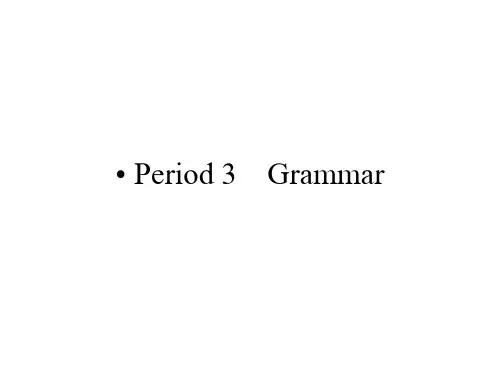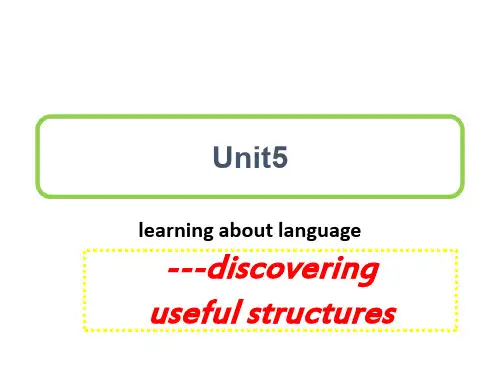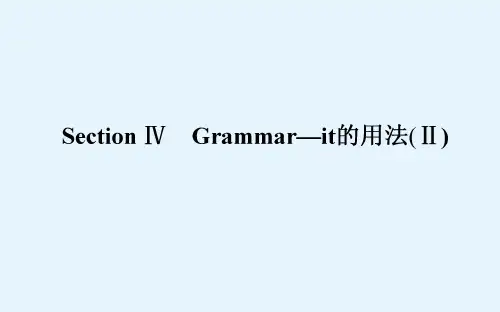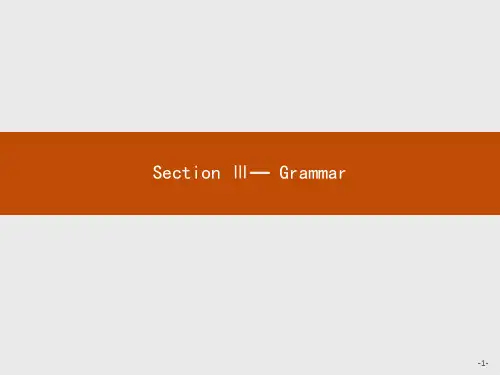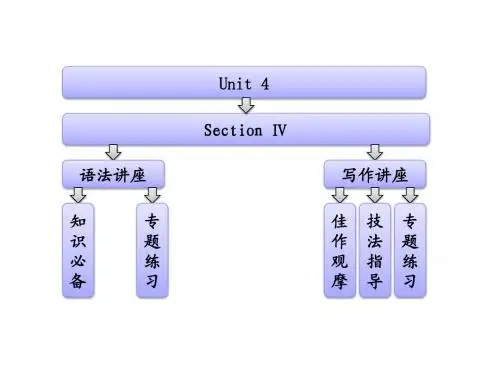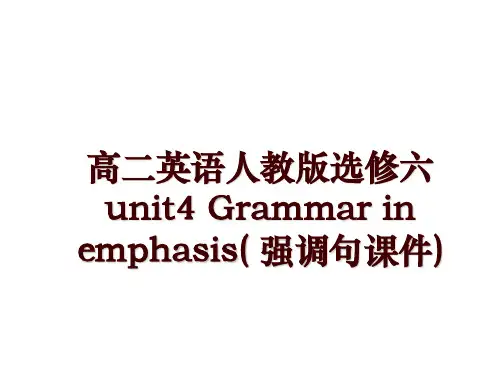• I was feeling tired, I went to bed early.
Feeling tired, I went to bed early. • I worked hard all day. I went to bed early.
Having worked hard all day, I went to bed early.
A. to prepare
B. preparing
C. prepared
D. was preparing
解析:答案B。非谓语动词充当伴随状语, 与主语the secretary是主动关系,因此 用v.-ing形式。
Unit5
learning about language
---discovering useful structures
•[1] 作时间状语 Walking along the street, I met Mary.
(=While I was walking along the street, …) 听到这个消息时, 他们都高兴地跳了起来。
________________, they all jumped with joy. Hearing the news
(=Because I was tired, …)
Not knowing her address, we couldn’t get in touch with her.
由于不知道她的地址,我们无法和她联系。
听到这个消息时, 他们都高兴地跳了起来。
• 作条件状语 Turning to the left, you will find the school. (=If you turn the left, …) If you work hard, you'll succeed. =Working hard, you'll succeed. • 作让步状语 1. Working hard as he did, he was still unable to support the whole family. 2. Knowing where I live, he never comes to see me. =Though he knows where I live, he never comes to see me.
![[课件]高中英语选修六 Unit 4 Grammar(共32张PPT)](https://uimg.taocdn.com/408dabc6aef8941ea76e05cf.webp)

